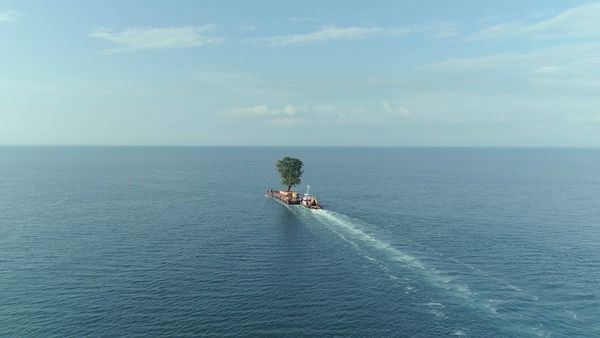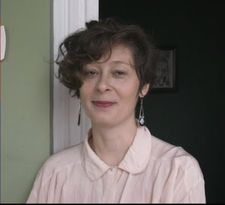 |
| Taming The Garden Photo: Courtesy of Sundance Institute |
Politicians have called your films “the lie of the century”, “shameful” etc. Do comments from political figures make you angry, and will your future films be more “angry”?
I’m generally angry, though I say that half-jokingly. People sometimes ask why I stay in Georgia, and I tell them it’s because this place makes me feel something – it pushes me to reflect and think deeply. It’s been that way for years. But it’s not just anger. There’s also a strong attachment to this place. I don’t set out to make “angry films.”
My goal is more about understanding the world and offering space for others to reflect. Such comments by people like Irakli Kobakhidze worried me. At first, I thought it was silly, but then I realised how many people are in a similar situation. He’s now the prime minister, with state protection and security, while I’m just an ordinary citizen. I started to question how safe this environment really is for me and my child after hearing statements like that.
Georgia has crucial elections this month. How do you think the current political situation affects the film industry, and what challenges do filmmakers face?
We’re facing major challenges, yes. Over the past two to three years, there’s been a crackdown on the film industry and on culture in general. This year, for example, the [Georgian National Film] Centre didn’t even open a call for documentary projects, and no funding was provided. Nearly everyone in documentary filmmaking is participating in a boycott of the Centre, but the process should still move forward.
Someone might want to apply. No funding was given in 2022 either, and in 2023 only half of the approved budget was distributed. The Film Centre is not just withholding funds; it also refuses to provide the official letters that filmmakers need for international co-productions. This blocks access to external funding.
The Film Centre is applying financial, bureaucratic, and psychological pressure. The head of production even went on television to mock these filmmakers.
With the challenges of the boycott, how important is help from international friends?
 |
| Salomé Jashi: I don’t set out to make 'angry films' Photo: Courtesy of Sundance Institute |
This year, female directors have been dominant at documentary film festivals, but nondocumentary cinema is still far behind. Why is this, especially in Georgia?
In DOCA, 70% of our members are women. You could say documentaries are cheaper to make, and generally, where there’s more money, there are more men. But our research shows these films aren’t made for profit. I thought it might be about responsibility, but no – I think women take on more of that. Many are mothers, some single mothers. You could say women are more drawn to passion projects.
On the topic of documentaries, Georgian films from the 1990s and 2000s are unfamiliar to most Georgian audiences, let alone international viewers.
I think the work Lika Glurjidze and Luka Bedoshvili have done to research and organise these films is crucial for us Georgians. The study of Georgian documentaries from the 1990s and 2000s, conducted by Lika and Luka, was commissioned and published by Documentary Association Georgia. When I started, I thought our audience was international, though we didn’t make films specifically for them. There were no distribution channels here. That’s changed a bit – films are now shown in cinemas, but not on public TV. Directors had to screen their films themselves, often for just 20 or 50 people.
The crisis has sparked public interest in Georgian cinema. People who hadn’t seen Georgian films are now attending screenings, which is a positive side effect of the current political situation. These films from the 1990s and 2000s aren’t just documentaries – they’re our memory. It’s part of our collective history, something we might have forgotten.
Our programme aims to bring that memory to life, to remind us where we come from, and continue from there. In this country, I often feel uprooted, like a tree in turbulence. Something tells you that you don’t belong here ideologically. That’s why knowing our recent history grounds us. It shows us what happened, the forms it took, and the people who lived through it...





















